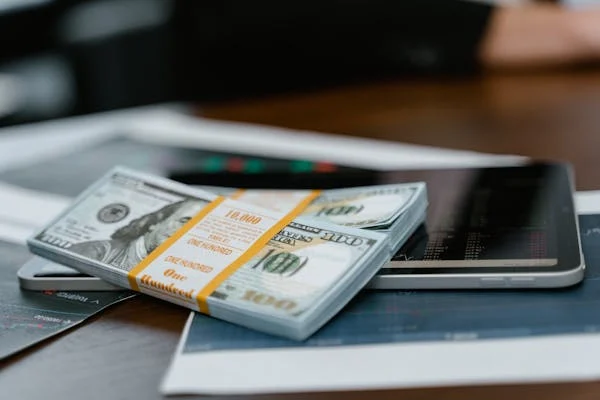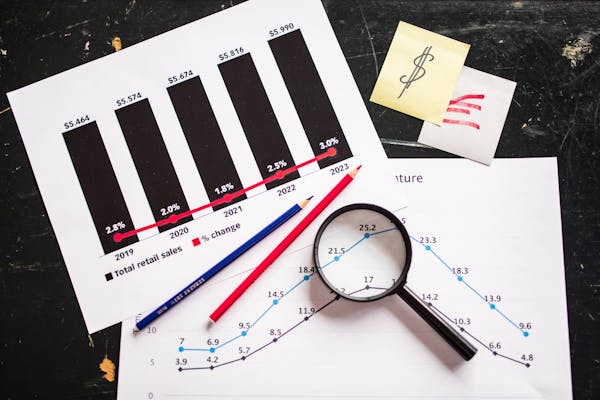Link copied
The 'Trump put' makes an appearance: Morning Brief.
general :: 2025-04-10 :: source - yahoo finance
By Hamza Shaban
 The 'Trump put' makes an appearance: Morning Brief. Source image: Yahoo finance
The 'Trump put' makes an appearance: Morning Brief. Source image: Yahoo finance
This is The Takeaway from today's Morning Brief, which you can sign up to receive in your inbox every morning along with:
The chart of the day
What we're watching
What we're reading
Economic data releases and earnings
On Monday morning, we all got a preview of how the market might get out of this mess. And on Wednesday, we got the feature presentation.
Or, better put, the first episode of the next series.
President Trump backed away from his most aggressive tariff posturing, replacing the reciprocal tariffs on most countries with a 90-day pause. A false headline earlier this week claimed the same thing, sparking a momentary rally.
But this time it's real and came directly from the president — the only meaningful catalyst for stocks at the moment.
The deescalation of the self-induced crisis also seemed to answer a basic but all-encompassing question: What, if anything, could convince the White House to change course?
"Would it be Congress, the president's advisers, business leaders, the legal system, markets, or something else? We got the answer today: It's the government bond market," said Mohamed El-Erian, president of Queens' College, Cambridge.
A cocktail of new recession predictions, a convulsing stock market, and most importantly a distressed bond market seemed to have gotten through to the president.
Treasurys have long been considered a haven asset, a place to turn to when volatility and uncertainty amplify investment risks. So the recent sell-off in bonds is not what you’d expect to see as stocks stumbled.
The moves suggested heightened concerns over global financial stability and a loss of confidence in the US economy. The rout also removed the sliver lining of the broader stock sell-off: lower rates that make borrowing cheaper for households and businesses, offering Americans some relief.
And the lack of that consolation prize for a weakened stock market and slowing growth made the bond selling so distressing, it appears to have moved the president.
So, where do things stand now? For the businesses that were about to get clobbered by import taxes, hope is the word of the day. But it's hard to say if the 90-day pause is a mere deferral or the beginnings of a lasting resolution. During the run-up to Trump's "Liberation Day," the agony was in the waiting, the constant speculation: "Will he or won't he?"
On the one hand, the worst economic outcomes seem to have been avoided — Goldman Sachs, for instance, rescinded its recession call, which was published just minutes before Trump's tariff reversal. But Americans and the rest of the world are still left with yet another tariff countdown. And plenty of recession calls remain with the damage done.
What the White House called "the art of the deal" on Wednesday, others critical of the administration's leadership style described as "reckless improvisation," as Larry Summers said on X.
We're now all witness to brinksmanship's costs. The stock market is still well off its highs; retirees are drawing from smaller pools of savings; uncertainty abounds; businesses have already altered investments and hiring; US foreign relations are strained; and we're still left with a lot more tariffs and an unresolved trade war with China.
"This is not a situation where anyone can ring the 'all-clear' bell," wrote Renaissance Macro's head of economics Neil Dutta on Wednesday. Dutta, notably, is keeping his recession call in place.
It could have been worse. But Wednesday's euphoria can't mask that things are far from great in the markets — and economy.
Hamza Shaban is a reporter for Yahoo Finance covering markets and the economy. Follow Hamza on X @hshaban.
Source: Yahoo finance(Morning brief)
This week top market trends.
-
Global investors, blindsided by stunning US comeback, jump back in
2025-09-25 :: stock :: reuters
Recent global market news
-

How to protect your money during economic turmoil, stock market volatility
2025-07-27 :: :: yahoo finance




